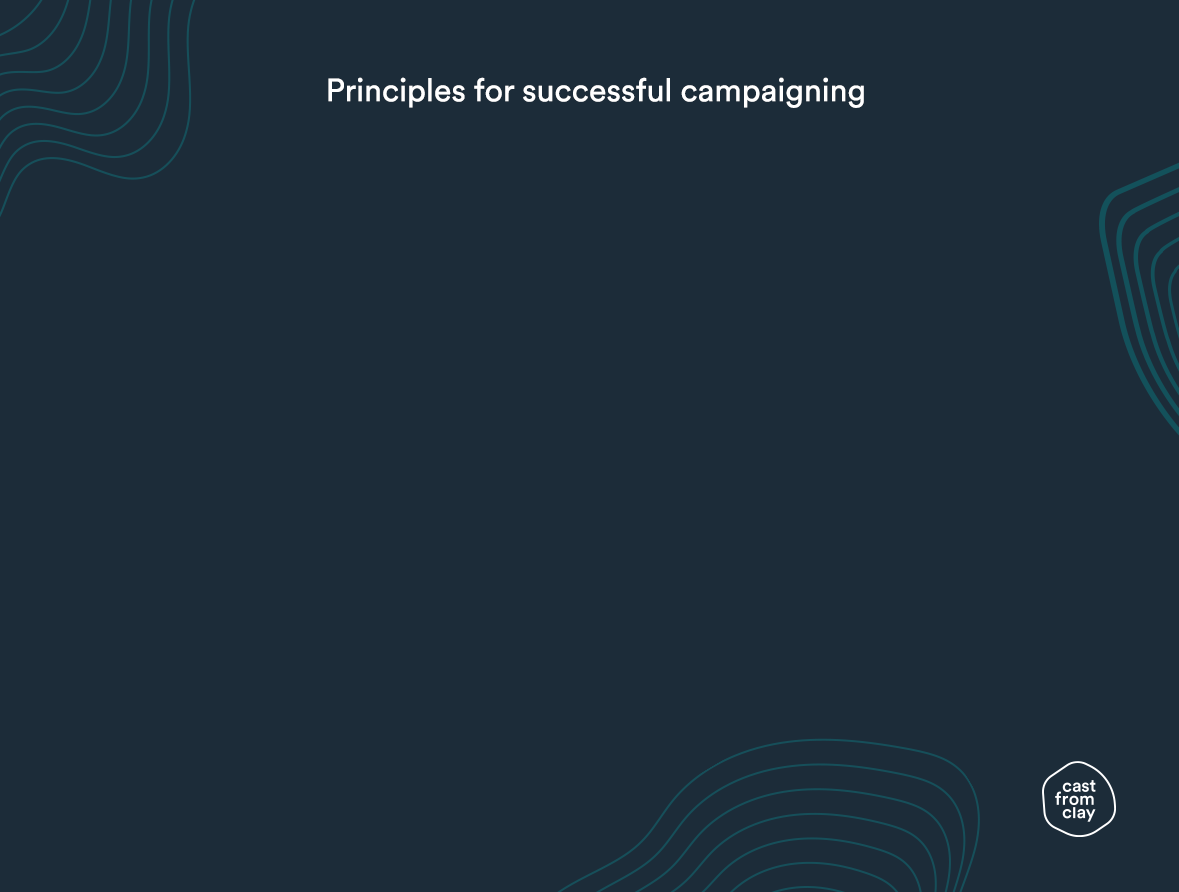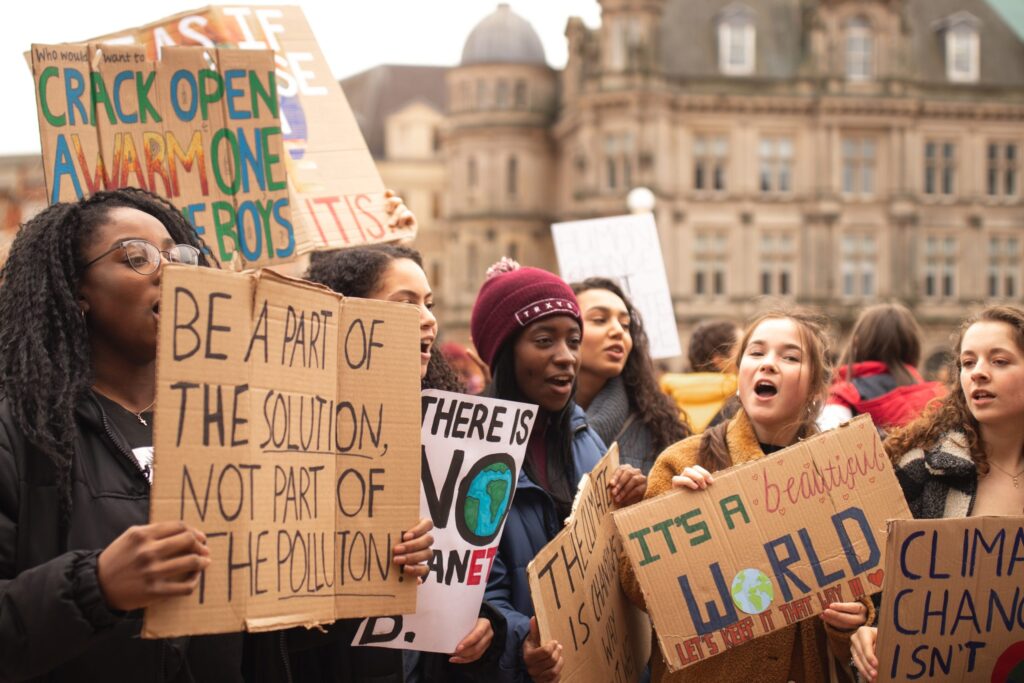The election approach to climate campaigning
With COP, everyone wants their voice to be heard. It’s like being at a party with people gathering around the bar, getting excited and shouting over each other.
Nobody is listening to what everyone else has to say. There’s no chance they’ll remember what was said the day after the party, never mind a week later.
Much of what we have seen around COP – and with many global policy events – falls into what we call the election approach to campaigning.
There is an election coming up. Your side wants to win. You want the other side to lose. You shout as loud as you can for a short period, hoping that voters listen to you more than your opponents. Once the election is over, campaigning will take the backseat until the next one.
Impulsive climate campaigning works on this ‘us vs them’ axis (activists vs governments, science vs economy, human vs nature, etc). We fight enemies and compete with each other triggering a chain of defensive reactions.
There are several problems with this approach.
First, our climate challenge is not an election. There will not be another chance in five years to pick another path. Nor in five years after that. That time has passed. We need to pick a track now and stick with it, building on this as more and more information on what works becomes available.
“Our climate challenge is not an election. There will not be another chance in five years to pick another path”
Second, the election approach to campaigning ignores the fact that policy evolves gradually, rather than being set all in one go.
Despite what bombastic headlines might suggest, all the decisions, policies, targets and plans won’t be made in that two-week rush in Glasgow. This is one event in the policy process. It is important for many reasons, but it isn’t the be all and end all of climate policy for our generation.
The pledges unveiled at COP26 were under negotiation for a long time before the event. The actions through which the goals and targets will be achieved will come after the event itself.
If the world doesn’t hit its climate goals, it won’t be that those two weeks of COP26 have failed to deliver. It will be that we haven’t done enough of the right stuff in the long run up to the event, and the period after, where talk turns to action.
Say bye bye to the election approach to campaigning
The election approach to campaigning, focused on big events, is not the best approach to create lasting impact.
Effective campaigns feature set-piece comms to coincide with these events. But too often, short campaigns get lost in the noise, appearing while there’s attention to be earned, but not delivering when there’s action to be made.
What differentiates successful campaigns from the superficial is strategic thinking plus long-term engagement with the issues and the other parties working on them.
Some principles to follow:
1. Make sure your campaigning activity is aligned with your wider organisational strategy.
Have a good strategy that is aligned with your goals. Review every idea through that lens. If the idea doesn’t fit, ditch it.
2. Remember that set-piece events are just a point on a journey, not the destination itself.
Set a long-term plan in advance, with steady activity extending over months, ideally years. It’s about setting the scene and building a new narrative, shifting the status quo gradually, rather than expecting everyone to jump on board with your idea in a short period.
3. Time your campaigns well.
Run them when decisions are being made, not announced. Engage with decision-makers in a meaningful way. This means you might have to mark your calendars quite a few months before the actual event.
4. Don’t fight invisible enemies. We are in this crisis together.
We have had enough appeals to act together – now is the time to do it. Watch what your partners do, engage in their projects, collaborate, and create influence together.
5. Learn to listen.
In the run up to a big event, it is easy to get engrossed in your own preparations and forget to pay attention to what is happening around you. Make sure you keep up with conversations and allow your strategy to respond in real time if needed.
6. Say something different. Say it well. Tell a story.
Use stories a lot, data sparingly. And no, the data doesn’t speak for itself. Give it a voice. Tell its story. Then people will listen. We are past raising awareness now – we need to talk about solutions.




